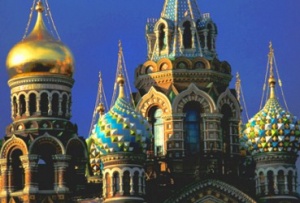Russia visitor arrivals set to climb

Russia is set to see a 20 percent increase in visitor arrivals over the next four years fueled by the hosting of major sporting events, reveals research unveiled at the World Travel Market (WTM) Vision Conference-Moscow.
Russia is hosting an array of sporting events over the next 6 years, climaxing with the FIFA World Cup in 2018. The sporting schedule starts next year with Moscow’s hosting of the World Athletic Championships and the Rugby Sevens World Cup. Also in 2013, is the Universiade (University games) in Kazan, while 2014 sees Sochi have the Winter Olympics.
These events will bring an increased focus to the Russian inbound tourism industry, which will help visitors peak at more than 28.3 million – up 20 percent on 2012’s inbound tourists figure of 23.7 million, delegates at WTM Vision Conference-Moscow at the Moscow Marriot Grand will hear this morning.
The Euromonitor International report reveals this increase will be mainly fueled by European destinations with Finnish visitors increasing by 16 percent to nearly 1.3 million visitors in 2016. Polish visitors will increase by 25 percent to 857,000 in 2016, visitors from the UK will increase by 17 percent to 250,000, with Turkish visitors rising by 19 percent to 243,000.
Visitors from the US will also increase by 15 percent to 301,000 in 2016.
ADVERTISEMENT
Currently, Russia’s largest inbound markets are the former Soviet republics of Ukraine, Kazakhstan, and Uzbekistan, mainly due to the close connections and similar linguistic and historical links, enabling tourists to meet easily with friends and family.
Inbound visitors are also expected to increase from China due to the simplification in visa regulations between Russia and China.
However, the report – The Travel Industry Global Overview – states that visa barriers are currently a major restriction for inbound tourism to Russia. Visitors from most countries require a visa to enter, which must be obtained in advance. There are on-going talks with the EU regarding changes to the visa process.
Another restriction highlighted is hotel prices in the main tourist destinations; these are extremely expensive and should be reduced in order to attract more tourists.
Furthermore, Russia outbound tourism spend is expected to rise an average 8 percent a year until 2016.
Russian outbound distribution is swiftly shifting online with a 50 percent increase in online spend predicted over the next 4 years. Growing Internet penetration, combined with the recession, has encouraged online searches as travelers seek bargains, mainly seen within transportation.
Reed Travel Exhibitions Director, World Travel Market, Simon Press, said: “The findings are very positive for the Russian market. As long as the visa restrictions are minimized, Russia will see its tourism industry grow substantially over the next few years.”
“Russia will be showcased to the world with the hosting of all the major sporting events taking place, this being the perfect opportunity to highlight Russia as a tourism destination.”
The Euromonitor International report – The Travel Industry Global Overview – worth 46,971.35 Rubles (£1000), is given to all attendees of the WTM Vision Conference-Moscow.
WTM Vision Conference-Moscow, organized in association with tour business is the first WTM Vision Conference in Moscow, following successful events in London, Dubai, and Milan last year. This year, WTM Vision Conference will also take place in London and Shanghai with the conference in Italy moving to Florence.

